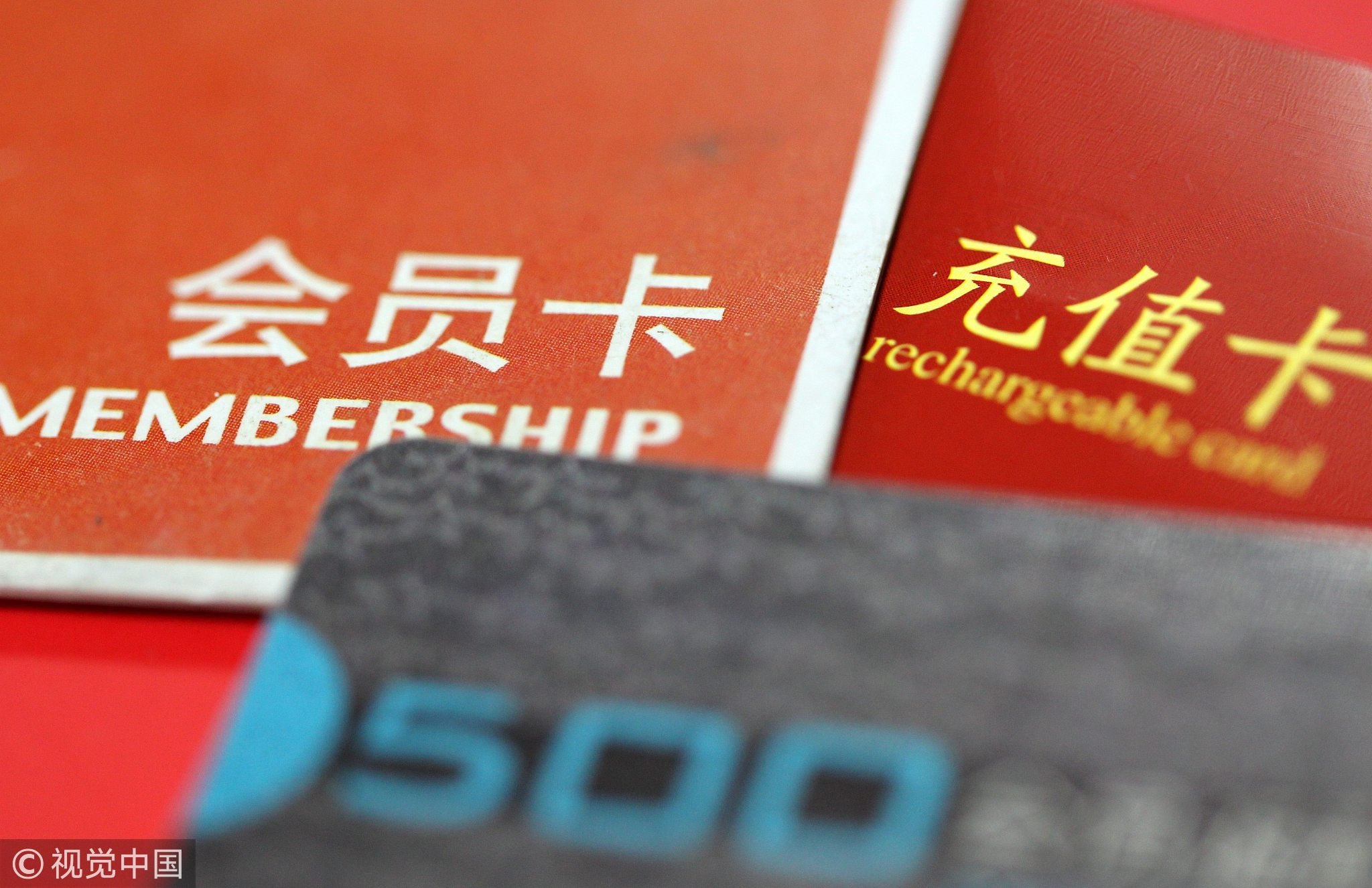
China
22:44, 29-Jul-2018
Shanghai the first Chinese city to legislate prepaid cards
Updated
22:09, 01-Aug-2018
CGTN

Chinese consumers are not strangers to prepaid cards, which are issued by a company or shop and can only be used inside the issuer. Fitness cards, hairdressing cards, laundry cards and even education training cards have become a daily choice given the discounts and convenience.
However, this payment mode has incurred long-standing cases of complaints such as excessive card issuing, service reduction, discarding the network and even cancelling it without telling consumers.

VCG Photo
VCG Photo
The number of such complaints reached 12,106 last year just in Shanghai, not to mention the whole country. Since the current Consumer Protection Act does not cover the management of prepaid cards, Shanghai’s lawmakers on Friday approved a law draft to make more specific regulations and introduce governmental supervision.
The rule, which will take effect January next year, stipulates that prepaid-card issuers have to register on a government-run platform, and update their running information on a regular basis to allow consumers to assess the risk of buying or recharging the cards.

VCG Photo
VCG Photo
When there is “potential risk” involved for consumers, card-issuing units should deposit a certain amount of money into a special account to ensure financial safety. Violators will be fined up to 200,000 yuan (about 29,370 US dollars) after receiving warnings from the authority.
Moreover, once the company shuts down its business, registered consumers should be notified by phone, SMS or email 30 days in advance.
Those who close their doors abruptly and receive more than two administrative punishments for violation of regulations within one year will be given a bad social credit rating.

VCG Photo
VCG Photo
Shanghai’s active move has won the applause of its citizens as there are more than 100,000 pre-paid card issuers in the city and many netizens said it’s a guarantee for consumers on China’s Twitter-like Weibo. They also pointed out that strengthening policy executive ability is the key.
Experts from the legal community also expressed their support. “When the market fails, regulators can’t fail, and when regulators fail, lawmakers can’t fail,” Liu Junhai, a professor at the Law School of Renmin University of China, said in an interview with China National Radio (CNR) earlier this month.

SITEMAP
Copyright © 2018 CGTN. Beijing ICP prepared NO.16065310-3
Copyright © 2018 CGTN. Beijing ICP prepared NO.16065310-3